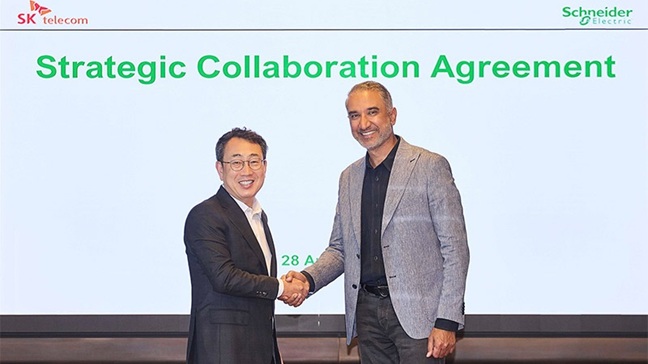In recent developments within the AI and automation landscape, SK Telecom (SKT) has inked a significant deal with Schneider Electric during the Mobile World Congress 2025 in Barcelona. This partnership aims to advance the infrastructure of an AI data center in Ulsan, South Korea, by integrating key power and control systems designed to enhance operational efficiency. For small to medium-sized businesses (SMBs) considering their own automation journey, this collaboration provides practical insights into implementing AI-driven automation.
Central to the agreement is Schneider Electric’s provision of mechanical, electrical, and plumbing (MEP) systems for the SK AIDC project. The equipment involved includes switchgear, uninterruptible power supplies (UPS), transformers, and automated control systems. This offers a foundational example for SMB leaders looking to understand the critical components of an automated environment.
SMBs can begin by identifying their essential requirements in automation systems. Understanding the operational needs is crucial; for instance, if you anticipate growth in data management, investing in scalable power supplies and robust control systems provides a proactive foundation. Utilize tools like Make or Zapier to streamline processes between traditional systems and new technologies. For example, data collected from sales can be automatically processed to inform inventory management systems, minimizing manual input and errors.
The partnership also incorporates digital twin technology, specifically Schneider Electric’s Electrical Transient Analyser Programme. This software enables the design and analysis of power systems, crucial for effective Data Center Infrastructure Management (DCIM). For SMBs, this highlights the importance of simulation and foresight in planning. By assessing various scenarios, businesses can ensure that they choose the right automation technologies that align with their anticipated workflow and operational demands.
Given the nature of the collaboration, businesses should consider forming dedicated working groups around similar objectives. SKT and Schneider Electric are focusing on MEP reference design, prefabricated systems, and energy-as-a-service arrangements. SMBs can mirror this approach by setting up teams that focus on specific automation projects. For instance, a task force that targets integrating customer relationship management (CRM) systems with remote work technologies would help ensure that workflow remains consistent and scalable.
Further enhancing the collaboration, a new Memorandum of Understanding focuses on the joint development of an uninterruptible power supply and an energy storage system using Lithium-ion batteries sourced from SK Group. This illustrates the growing importance of reliable energy sources in maintaining continuous automation systems. For SMB leaders, this signifies the need to account for sustainability and reliability in their automation strategies. Developing a holistic approach that emphasizes energy efficiency could result in long-term cost savings and a smaller environmental footprint.
Pankaj Sharma, EVP and head of Secure Power and Services at Schneider Electric, stated that the partnership aims to set a new standard for AI data centers. This is a call to action for SMBs to rethink their current operational standards. The rapid emergence of AI suggests that organizations that fail to adapt may find themselves lagging behind their competitors. By gradually adopting AI tools, businesses can enhance their efficiency while fostering a culture that embraces innovation.
In this context, SMBs have opportunities to leverage automation technologies to improve not only operational efficiency but also customer experience. With various automation tools available, integrating solutions that connect systems can yield substantial returns on investment. For example, automating customer service inquiries can significantly reduce response times, thereby increasing customer satisfaction. Using platforms like Zapier, businesses can connect chat interfaces with ticketing systems, ensuring that every customer inquiry is handled promptly without overwhelming staff.
Nonetheless, it is vital to recognize the risks associated with automation. Over-reliance on technology without proper understanding or training can lead to operational gaps or system failures. Comprehensive training programs are necessary to ensure that staff is well-equipped to handle automated systems securely and effectively. Regular audits and iterative improvements will help catch potential issues early and maintain reliability as the technology evolves.
In conclusion, the partnership between SK Telecom and Schneider Electric serves as a significant model for SMBs exploring automation. By identifying specific needs, setting up focused teams, leveraging digital simulations, and recognizing the potential for innovation within their operations, SMB leaders can establish a competitive edge in their industries. Automation is not merely a technical enhancement but a strategic initiative that can redefine how businesses operate in a modern landscape.
FlowMind AI Insight: Embracing automation involves not just adopting new technology but fostering a culture of ongoing improvement and adaptability. SMBs can achieve transformative results by integrating automation into their operations mindfully and strategically.
Original article: Read here
2025-09-01 11:15:00

